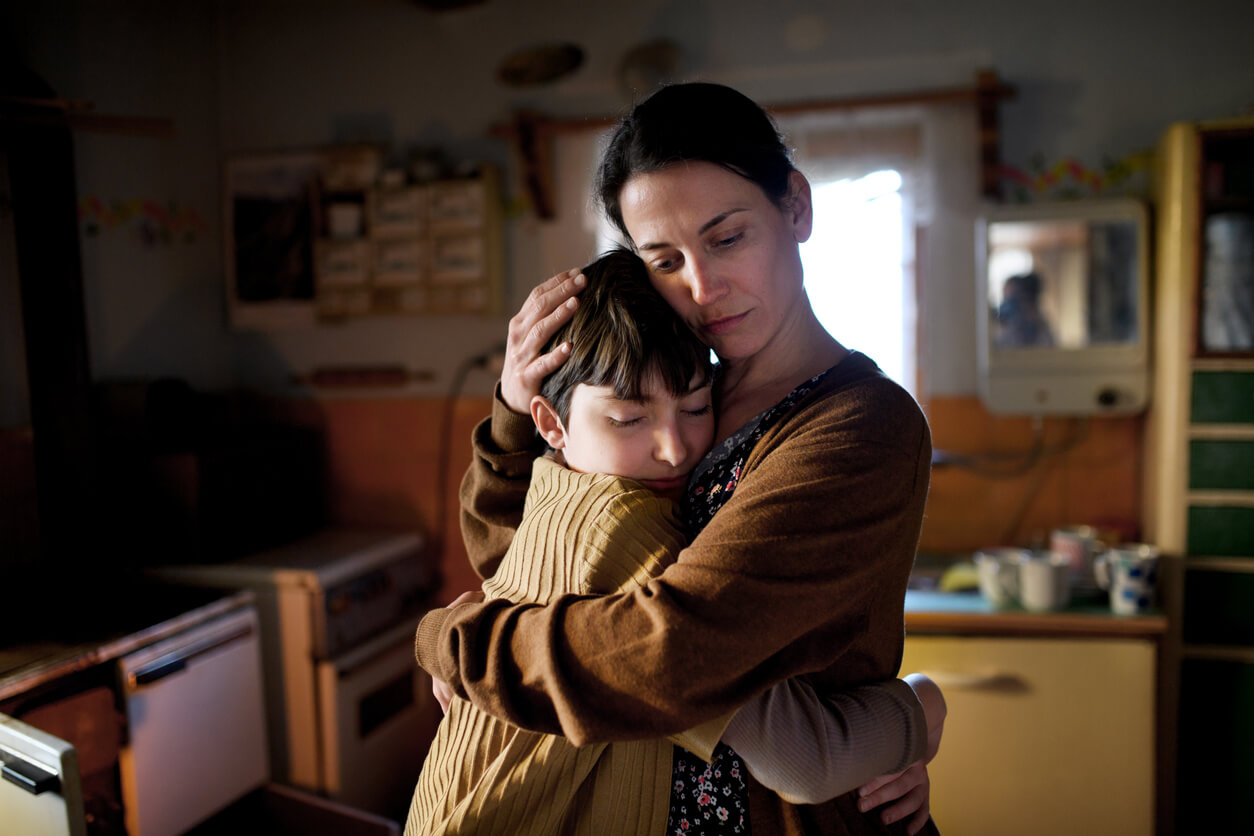Negative Emotions: Should We Hide Them from Our Children?

Many times, we think that the best option for children is to repress our negative emotions and try to hide them. However, before hiding them, we must know how to regulate them and use the necessary resources to do so. If we don’t know how to manage our emotions, what example are we going to give to our children?
Having good emotional intelligence consists of being able to use the necessary tools to identify, manage, and channel each of the emotions we feel. This way, we teach our children by example.
When we feel an emotion, we must listen to it to find out what its origin is and what it’s trying to tell us. If we pay attention to this, we’ll have more control over ourselves. In this article, we’ll tell you more about this topic. Don’t miss it!
Is it right to hide negative emotions from our children?
Parents want their children to be happy and for nothing to worry or sadden them. For this reason, we think it’s best to hide our emotions and act strong in front of them. However, there’s one thing we forget, and that’s that all emotions play a very important role in our emotional balance.
Even if we hide emotions such as anger, sadness, frustration, or fear, we’ll significantly lose the well-being and quality of the relationship with our children. By acting in this way, children will learn that these emotions should be hidden and not talked about. This, in the long term, can have consequences on their emotional well-being, as they won’t feel free to express their own emotions.

Repressing emotions
We don’t realize that, when we repress our emotions, we harm ourselves by preventing us from having good social development. Surely you’re familiar with these types of phrases: “You must be strong”, “There’s no sense in crying” or “It’s not that big of a deal”, among others. All these phrases do nothing but avoid feelings. On the contrary, when we’re angry, afraid, or sad, we have to express it.
The relationship with our children has to be based on communication, trust, affection, and love. For this, we must share our emotions and experiences with them.
Recognizing our emotions
It’s key that we know how to recognize our emotions and what to do with them. But how do we do it? Here are some ideas:
- Tend to the emotion we feel when we realize that something happens to us and causes us discomfort.
- If we feel anxious, what we have to do is recognize it, accept it, and take a moment to see what emotion is underneath. But how can we identify this emotion? We’ll tell you:
- We get into a comfortable position and relax our legs and arms.
- We breathe in deeply and breathe out, after counting to 5.
- We hold our breath for about 4 seconds.
- Release the air and count to 10.
- We try to name the emotion we feel. To do this, we can close our eyes and breathe deeply.
- We’ll name what we feel and validate it. We’ll allow it to be there even if it’s unpleasant.
- Now it’s time to ask ourselves what this emotion needs in order to improve. For example, it may need more understanding, acceptance, or patience with ourselves.

What should we keep in mind about our emotions?
Having said that, it’s important that we keep in mind a number of things about our emotions, such as the following:
- Negative emotions aren’t intended to hurt us but rather to inform us that something isn’t right.
- We shouldn’t ignore our emotions but rather allow them and feel them.
- It’s important that we reflect and look for what has triggered that emotion.
- Know how to recognize in our body the signals that tell us what emotion we feel.
- Emotions and feelings are part of the life of human beings and we must learn to live with them.
Repressing our negative emotions is a bad example for children
As we’ve seen throughout this article, negative emotions shouldn’t be hidden from children, as we would be setting a bad example. If parents repress what they feel, they can make their children think that these types of emotions should be hidden. As a result, their emotional development is damaged. Hence the importance of having a relationship based on trust in which we can express what we feel or what we think.
We must learn to regulate and channel emotions to express them in a healthier way, but we must never repress them, as it does us and our children no good.
All cited sources were thoroughly reviewed by our team to ensure their quality, reliability, currency, and validity. The bibliography of this article was considered reliable and of academic or scientific accuracy.
- Grewal, D., & Salovey, P. (2006). Inteligencia emocional. Mente y cerebro, 16(1), 10-20.
- Dedios Morales, K. E. (2019). Expresamos y controlamos nuestras emociones.
-
Alzina, R. B., & Escoda, N. P. (2012). Educación emocional: estrategias para su puesta en práctica. Avances en supervisión educativa, (16).
